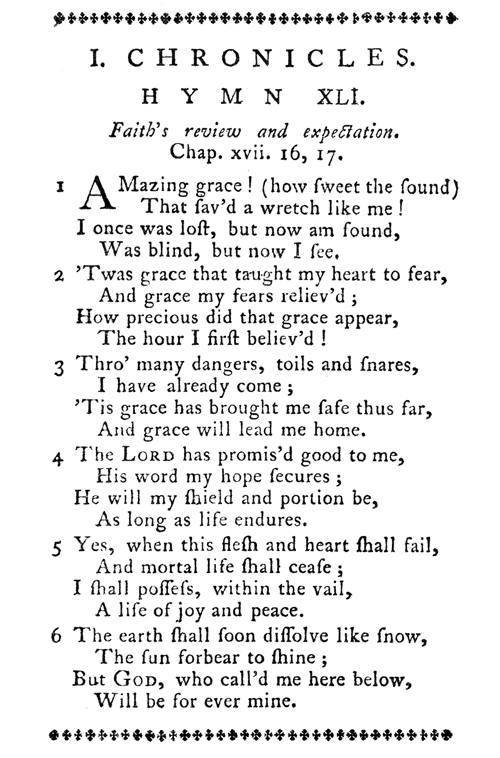Amazing Grace
I have hope in people, in individuals.
Because you don’t know what’s going to rise from the ruins.
Joan Baez
Amazing Grace is a well-known Christian gospel song with an eventful history. The version known today from 1779, which was written by John Newton, also has a special history: the Englishman Newton himself was sold to Africa as a white slave during his lifetime. He was later the captain of a slave ship and finally worked as a clergyman for the abolition of slavery. The text of Amazing Grace is about the overwhelming grace of God, which enables us to draw new hope and trust again and again and to make a fresh start in life.
The song comes from a Christian tradition, but describes a universal spiritual experience. Today, it is considered both a protest song against slavery and a hymn for Christian and non-Christian human rights activists. Significantly, although the poet of the lyrics was actively involved in slavery, the song was adopted by the African-American gospel scene. The song is sung as an unofficial anthem by the indigenous Cherokee nation. It has been interpreted by many well-known artists, including Elvis Presley, Aretha Franklin, Sam Cooke, Judy Collins, Al Green, Johnny Cash, Joan Baez, Ray Charles and Katie Melua.
There is an unmanageable amount of interpretations of the classic Amazing Grace. Here are some inspiring and informative examples of the interpretation and history of the song:
Flashmob example:
Documentary about the song:


